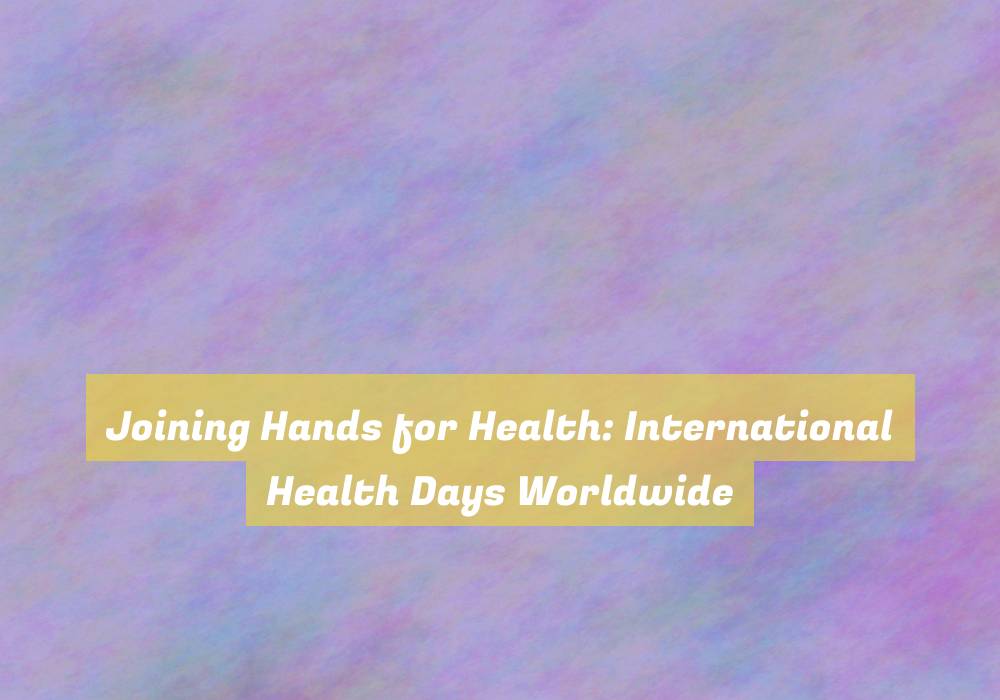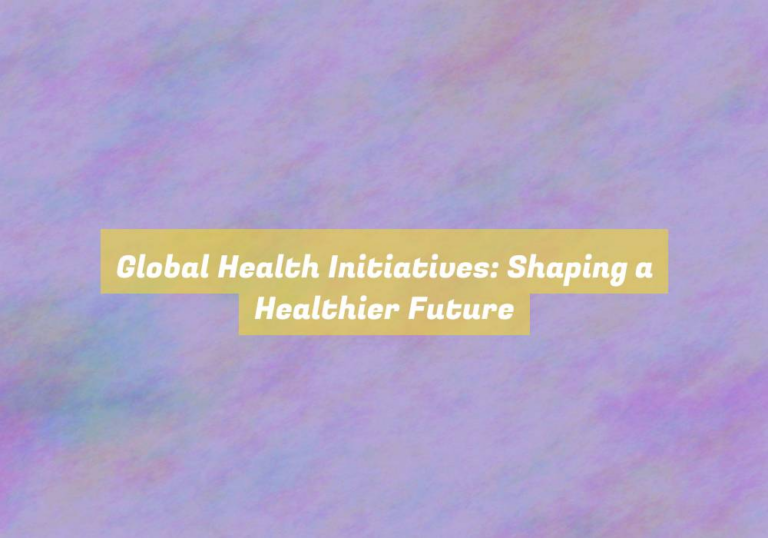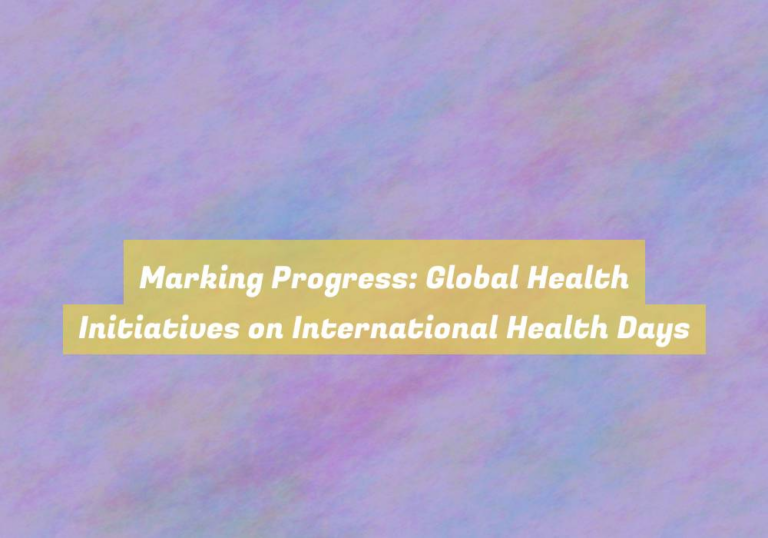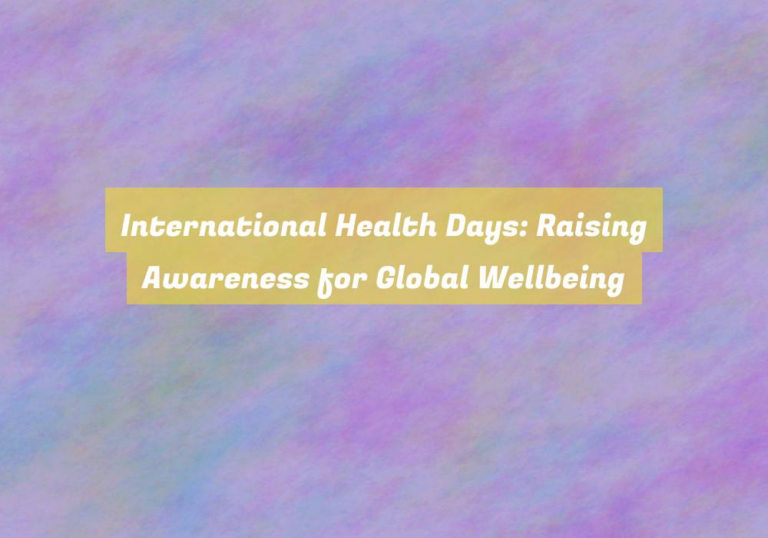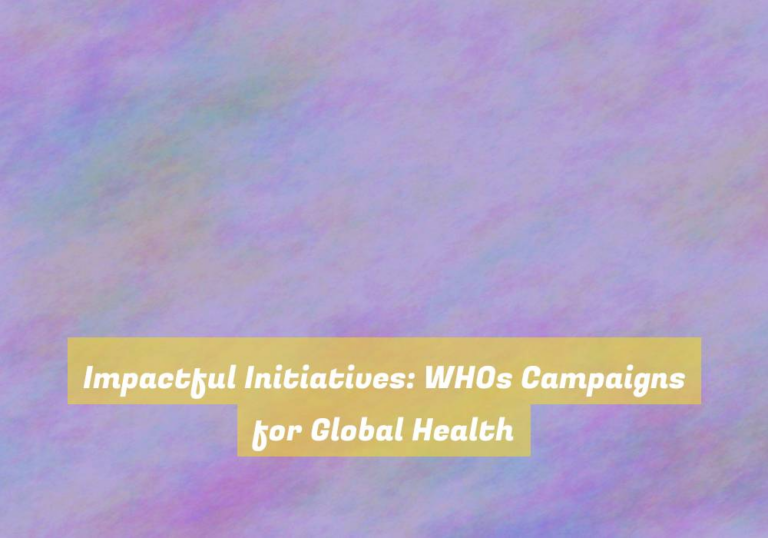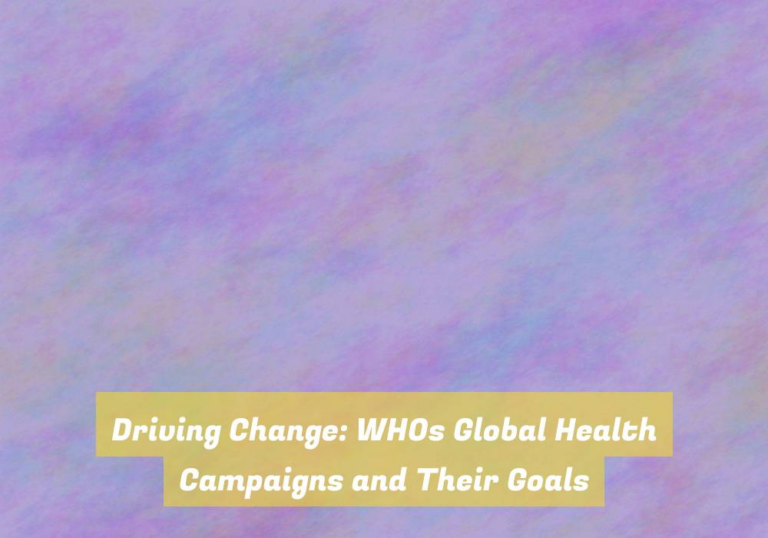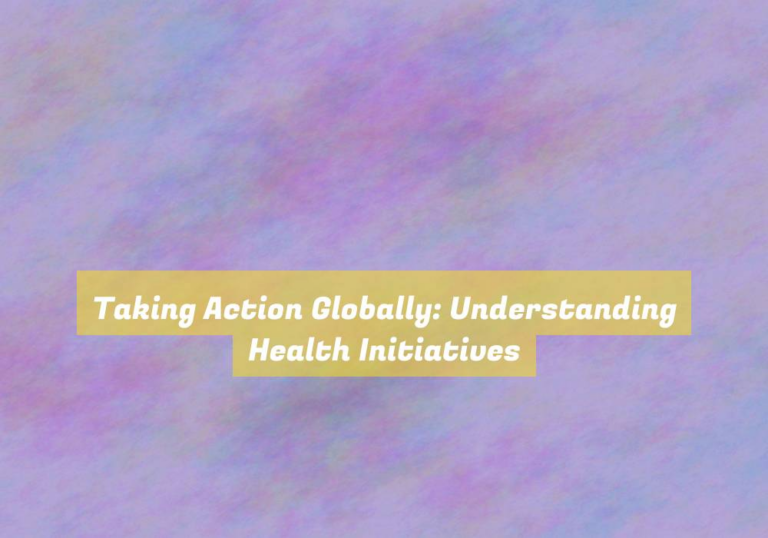Joining Hands for Health: International Health Days Worldwide
Joining hands for health is like weaving a tapestry of global wellness, with each thread representing a different International Health Day. From World Health Day to World AIDS Day, these observances serve as crucial reminders of the interconnectedness of health on a global scale.
But have you ever considered the true impact of these international health days on shaping policies and initiatives that affect the well-being of millions worldwide? You might be surprised to learn just how influential these days can be in driving change and addressing health challenges on a global level.
Significance of International Health Days
Understanding the significance of International Health Days helps individuals and communities prioritize health issues and take proactive steps towards better health outcomes. These designated days serve as a platform to raise awareness, educate, and advocate for specific health concerns that affect people globally. By highlighting these issues on a global scale, International Health Days create an opportunity for individuals to learn about preventive measures, treatment options, and the importance of early intervention. They also provide a chance for communities to come together in support of those affected by these health challenges and to promote policies that can lead to improved health outcomes.
Participating in International Health Days can also empower individuals to take charge of their own health. It encourages people to engage in healthy behaviors, seek medical advice when needed, and access available resources for disease prevention and management. Additionally, these days can spark conversations about health equity, access to healthcare, and the need for continued research and innovation in the field of medicine.
Impact on Global Health Policies
International Health Days not only raise awareness and advocate for specific health concerns but also have a significant impact on global health policies.
By bringing attention to pressing health issues, these observances compel governments and international organizations to take action. For instance, World AIDS Day has played a crucial role in shaping global policies and funding for HIV/AIDS prevention and treatment.
The global response to the COVID-19 pandemic has also been influenced by World Health Day and other health observances, prompting countries to work together and share resources to combat the virus.
Additionally, International WomenG??s Day has shed light on the importance of gender equality in healthcare, leading to policy changes aimed at improving womenG??s access to healthcare services worldwide.
These health days serve as catalysts for policy reform, pushing leaders to prioritize healthcare and allocate resources to address the most pressing health challenges.
As a result, they contribute to shaping global health agendas and promoting collaborative efforts to improve health outcomes for all.
Support for Health Challenges
When addressing health challenges, itG??s essential to provide comprehensive support systems that encompass both physical and mental well-being. ItG??s important to remember that individuals facing health challenges require not only medical treatment but also emotional support and understanding. Offering a network of support can help them navigate the complexities of their health conditions and improve their overall quality of life.
One way to provide support for health challenges is by fostering a sense of community. Encouraging open communication and understanding within families, work environments, and social circles can create an atmosphere of empathy and solidarity.
Additionally, access to mental health resources, such as counseling and therapy, is crucial for individuals dealing with health challenges. These resources can help them cope with the emotional toll of their conditions and develop effective coping strategies.
Furthermore, promoting education and awareness about various health challenges can help reduce stigma and misconceptions. This can lead to increased support and understanding from the broader community.
Community Engagement and Advocacy
To effectively promote community engagement and advocacy for health challenges, itG??s important to establish clear communication channels and create opportunities for active involvement. By fostering open dialogue within the community, individuals can voice their concerns, share their experiences, and contribute ideas for addressing health issues. Encouraging active participation through community meetings, workshops, and outreach programs can empower people to take ownership of their health and advocate for necessary changes.
Engaging with local leaders, policymakers, and healthcare providers is also crucial in driving advocacy efforts. Collaborating with these stakeholders can help amplify community voices, influence decision-making, and drive policy changes that address prevalent health challenges. Additionally, leveraging social media platforms, organizing awareness campaigns, and participating in public demonstrations can raise visibility and garner support for health advocacy initiatives.
Furthermore, joining forces with existing community organizations, volunteer groups, and advocacy networks can amplify the impact of advocacy efforts. By uniting with like-minded individuals and organizations, you can pool resources, share expertise, and collectively advocate for improved health outcomes.
Together, through active community engagement and advocacy, meaningful progress can be made in addressing health challenges and fostering a healthier society.
Conclusion
So, join hands with communities worldwide to support and advocate for better health.
Together, we can make a significant impact on global health policies and address health challenges.
International Health Days provide an opportunity to engage with the community and promote the importance of health for all.
LetG??s continue to work together to improve the health and well-being of people around the world.

